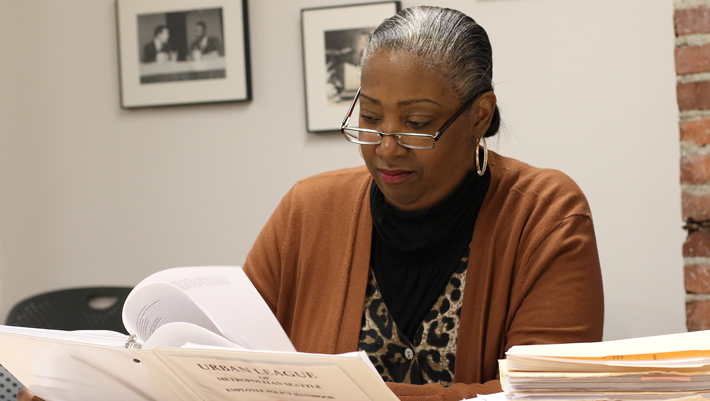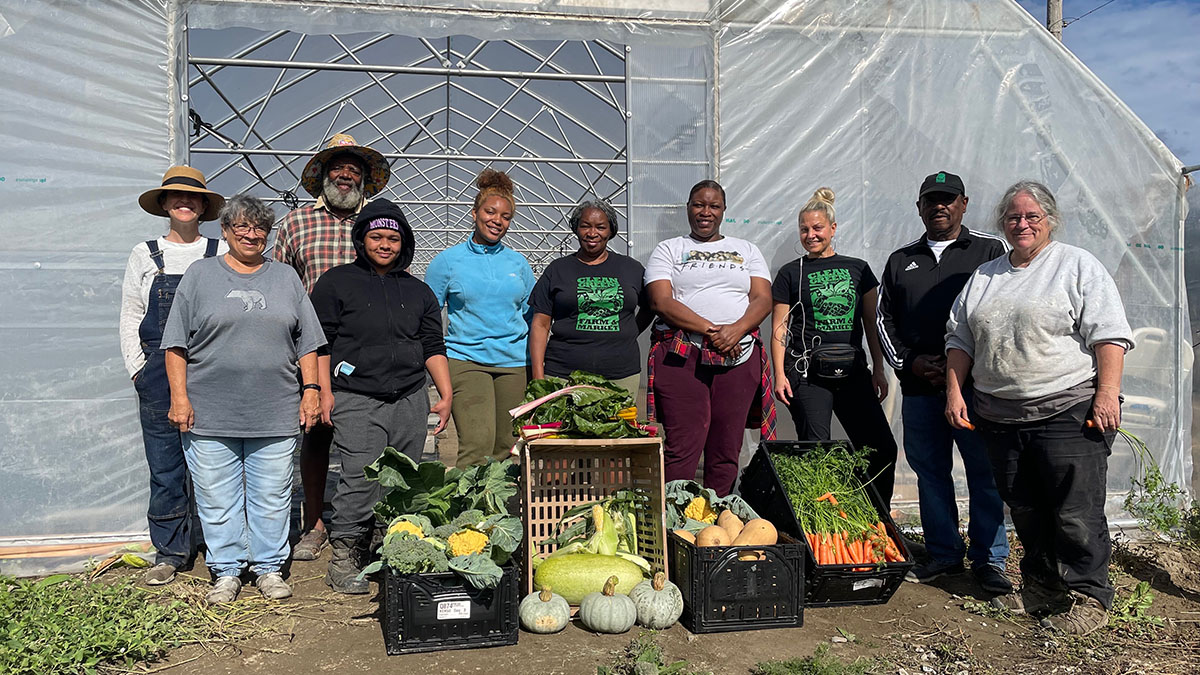
Founded in 2007, Clean Greens Farm and Market is a small nonprofit organization established by Black Dollar Days Task Force to provide education around food justice and healthy eating and to grow and supply fresh produce at affordable prices to low-income families. They also organize a youth program that gives local, BIPOC kids an opportunity to learn agriculture basics like starting seeds, caring for soil, composting, and harvesting crops.
Clean Greens recently received a Food Equity Fund grant and we connected with Cassandra Oaks to get to know more about the organization and its plans for the future.
Tell us a bit about Clean Greens and the work that you do.
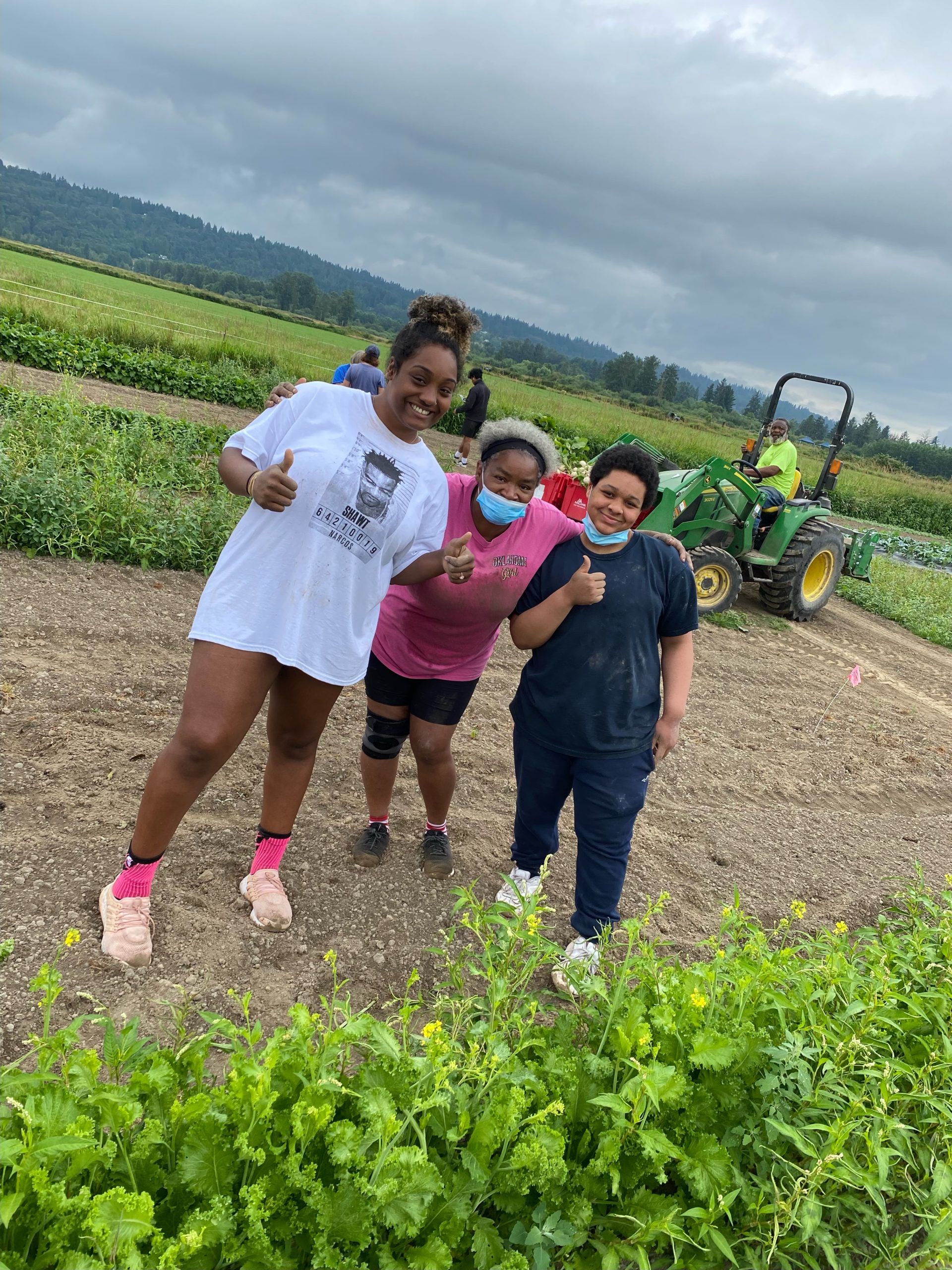
Clean Greens Farm was founded in 2007 by Dr. Robert Jeffrey. It is a minority managed, farm-to-table program located in Duvall that helps educate our community on healthy eating and food justice.
With our culturally diverse community in mind, Clean Greens Farm grows over 20 varieties of organic, chemical-free vegetables and provides them to the residents of Seattle through the Community Supported Agriculture (CSA) program and low-income food give-a-ways located at the Clean Greens market stands in Columbia City and the Central District.
Our food is grown by the community and for the community. We bring the community in to participate in our crop planning, farming, and harvesting and they provide cultural recipes to share with others.
In what ways have inequities in our food systems impacted the Black community in Seattle?
In Seattle and King County, African American adults are 4 times more likely to run out of food or money within a given month, and approximately two out of every five Black households experience food insecurities.
This impacts the general health of the African American community because diseases like high blood pressure, diabetes, and obesity are caused by poor or insufficient diets that are the result of living on inexpensive fast food with little or no health benefits.
How is your work at Clean Greens helping to address hunger, access to healthy food, and nutrition education?
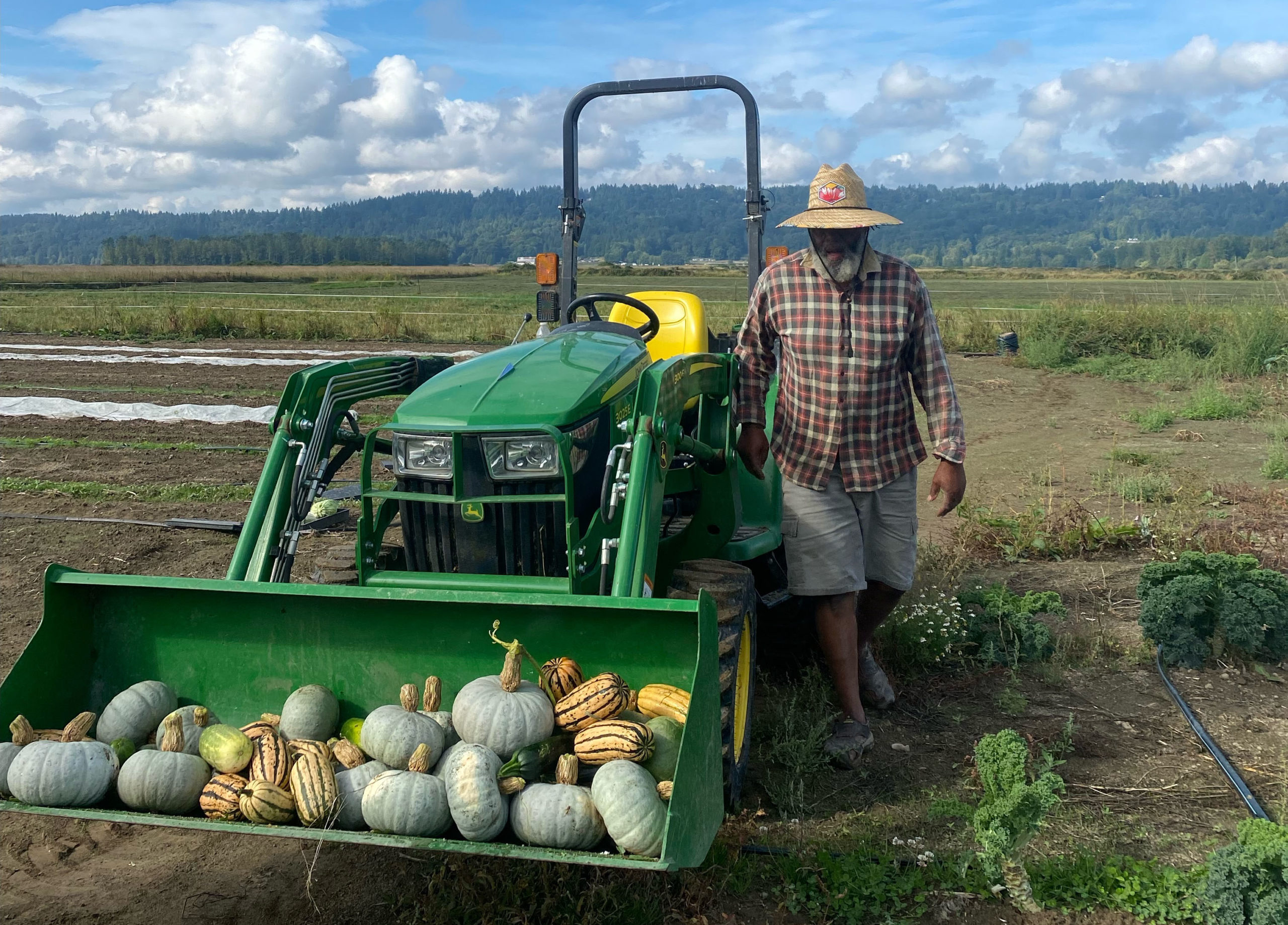
The farm was established to supply fresh, wholesome produce to families in need in Seattle’s Central District and other communities living in food deserts that don’t have access to healthy produce.
Clean Greens provides produce that would either cost too much or just not be available in local markets or food stores. We take requests from the community on foods that are common in our culturally diverse communities that they can’t find at local neighborhood markets. We provide these foods at the market stands or offer the opportunity for families and volunteers to come to the farm and harvest for their homes at no cost.
Clean Greens is accessible in the neighborhood; however, we also provide satellite market stands in strategic locations when it’s necessary to serve the community.
Additionally, we provide both youth and adults with food education, gut health classes, food justice workshops, and earth sustainability training.
How will the Food Equity Fund grant you received help support the mission and vision of Clean Greens?
A major part of our mission is to support self-sustainability for local African American, BIPOC, and low-income communities.
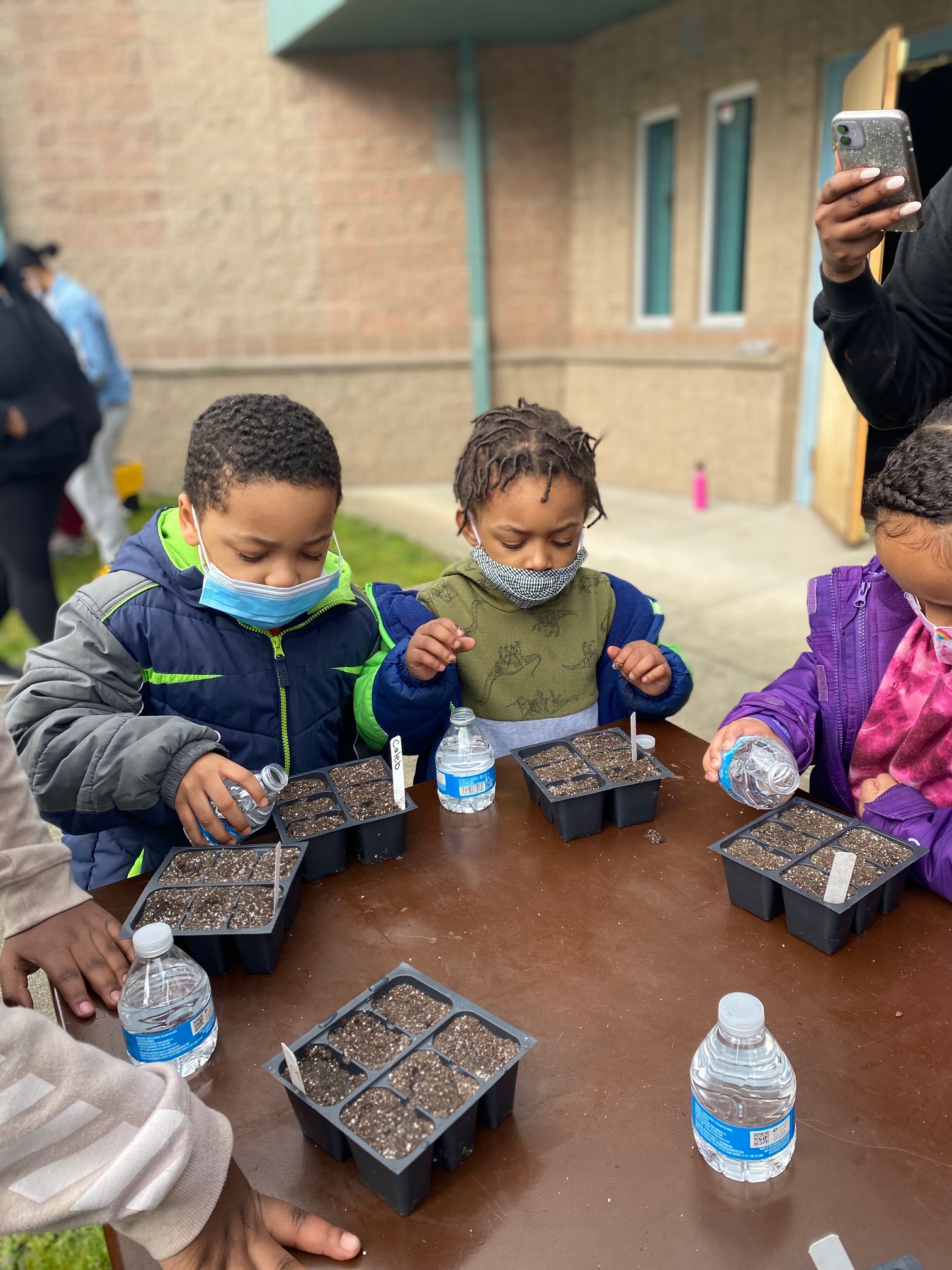
The Food Equity Fund (FEF) is helping Clean Greens expand and reach its program deliverables and projections by training in agriculture and farming principles. The funding will help us harvest more vegetables with the added greenhouses that will be fully functional at the farm this year. The greenhouses will protect some crops from elements, such as smoke/fire or flooding. We will be able to expand our varieties by adding herbs and specialty crops with the possibility of having longer seasons.
Also, we are adding more farmworkers, CSA subscriptions, and growing our farm volunteer list.
FEF will help Clean Greens youth grow vegetables with the two new Clean Greens Youth farms located in Seattle. This grant will help us target more youth for our summer program and network with more professionals to provide learning opportunities on environmental subjects.
Why is the work you are doing so important for shaping the health of the future and working to help heal wounds of the past?
The work we are doing for the community will begin life sustaining habits with our youth and community residents. Our youth are learning to read labels, grow vegetables, harvest crops, recycle, compost, and learn good eating habits which could have a long-lasting effect on their quality of life.
This is important because Clean Greens begins teaching kids at a young age to eat right, to not depend on fast food, to know that vegetables are good, understand where their food comes from, and help them develop a taste for the vegetables that they grow. Our youth understand that they can grow vegetables for their families, even if it’s just in a home box garden, they can produce vegetable from home to feed their families.
This opportunity also provides an avenue for our diverse community to connect with, and learn from, each other. We exchange recipes that often have vegetables or ingredients that are not very familiar in our households, such as homemade Kimchi.
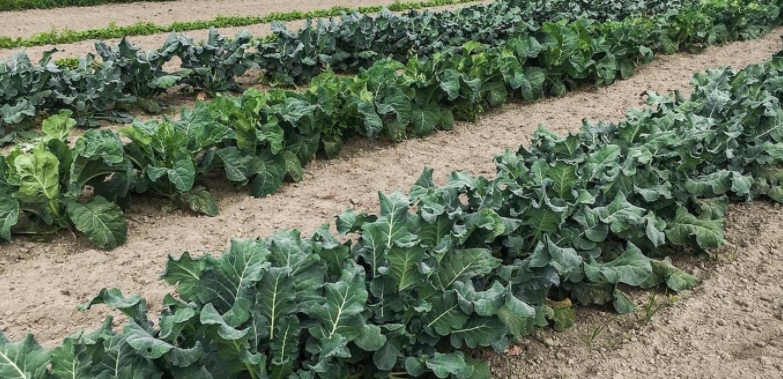
To learn more about Clean Greens Farm and Market visit www.cleangreensfarmmarket.com.
Applications are currently open for Food Equity Fund. Community-based organizations working to address food education, access, and security in Seattle are encouraged to apply by April 30. To learn more or apply visit www.seattle.gov/food-equity-fund.

